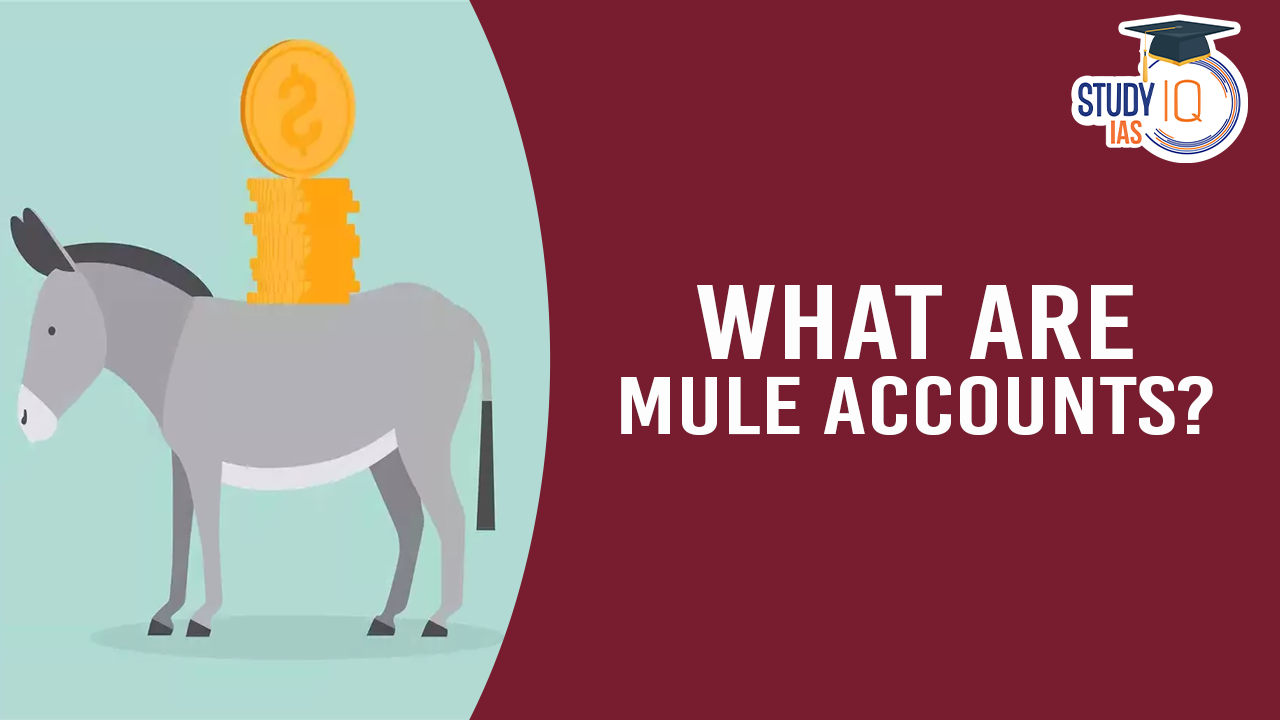Table of Contents
In the ever-evolving landscape of financial crime, mule accounts have emerged as a significant concern for banks and regulators alike. These accounts, often used to facilitate money laundering and other illicit activities, serve as critical links in the chain of financial fraud. Recently, RBI Governor Shaktikanta Das has raised alarms about the increasing prevalence of mule accounts in India, highlighting the urgent need for enhanced monitoring and preventive measures.
What are Mule Accounts?
Mule accounts are bank accounts used to transfer funds derived from illegal activities. These accounts serve as intermediaries for money laundering, fraud, and other illicit operations, often without the account holder’s full knowledge or consent. In many cases, individuals are enticed with the promise of easy money to offer their bank accounts for these transactions, making detection a complex challenge despite stringent controls.
Types of Money Mules
- Victim Mule: Individuals unknowingly involved in fraudulent schemes, with their accounts compromised for laundering money.
- Deceiver Mule: Those aware of their account’s fraudulent use but misled about the nature of the transactions.
- Accomplice Mule: Individuals who open new accounts explicitly for the purpose of conducting fraudulent transactions.
- Peddler: Those who sell their bank accounts to fraudsters.
- Opportunist: Individuals who use their existing accounts to facilitate illegal money transfers.
Mule Accounts in India
The prevalence of mule accounts in India is notable, with significant concentrations in cities like Bhubaneswar, Lucknow, and Navi Mumbai. A study by BioCatch revealed that a substantial portion of these accounts go undetected, posing a considerable risk to the financial system’s integrity.
RBI Governor Warned about the Mule Accounts
In a recent address at the FE Modern BFSI Summit in Mumbai, RBI Governor Shaktikanta Das highlighted the growing concern over mule accounts. He emphasized the need for banks to enhance their customer onboarding and transaction monitoring systems to combat the rising threat of these fraudulent accounts.
Key Points from Governor Das’s Address
- Enhanced Monitoring Systems:
- Das urged banks to strengthen their monitoring systems to detect and prevent mule accounts.
- He emphasized the importance of robust customer due diligence and continuous monitoring of transactions to identify suspicious activities early.
- Collaboration with Law Enforcement:
- The RBI is working closely with banks and law enforcement agencies to crack down on mule accounts and digital fraud.
- This collaborative effort aims to create a more secure financial environment and protect customers from fraudsters.
- Balancing Credit and Deposit Growth:
- Das warned about the potential structural liquidity issues arising from a lag between credit and deposit growth.
- He advised banks to ensure that credit growth does not outpace deposit growth to maintain financial stability.
- Prudence in Unsecured Lending:
- While the RBI’s actions have moderated growth in unsecured lending, Das expressed concerns about some banks maintaining high ceilings on unsecured lending.
- He advised banks to exercise prudence and avoid excessive risk-taking.
Protecting Against Mule Accounts
To safeguard themselves from becoming unwitting participants in fraudulent schemes, customers should:
- Be skeptical of unexpected job offers, especially those promising high earnings.
- Be cautious of unusual payment methods and requests for personal information.
- Carefully assess any requests for personal details or account access.
- Avoid making quick decisions when asked to confirm their identity or provide sensitive information.
RBI’s Measures to Combat Mule Accounts
The RBI has implemented stringent Customer Due Diligence (CDD) norms, requiring banks to adopt a risk-based approach for periodic account updates. Key measures include:
- Close monitoring of transactions to detect suspicious activities.
- Reporting any suspicious transactions promptly to relevant authorities.
- Ensuring strict adherence to Know Your Customer (KYC) norms to prevent the misuse of accounts.
Conclusion
Mule accounts pose a significant threat to the integrity of the financial system. The warnings and measures highlighted by RBI Governor Shaktikanta Das underscore the need for vigilance, robust monitoring systems, and collaborative efforts to combat this growing menace. By understanding the risks and taking proactive steps, both banks and customers can contribute to a safer and more secure financial environment.


 New Ramsar Sites in India: Latest Additi...
New Ramsar Sites in India: Latest Additi...
 Lok Adalats in India: Meaning, Types, Ca...
Lok Adalats in India: Meaning, Types, Ca...
 New Insurance Bill, 2025: Key Provisions...
New Insurance Bill, 2025: Key Provisions...

























